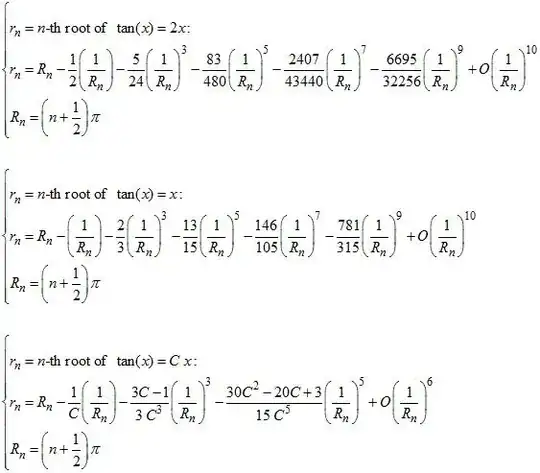I did this using trial and error, but I was just wandering if there is an algebraic way of solving this?
I thought about double angle formula but that doesn't work properly does it?
I then tried writing it in the form $x \cdot 2 \cot(x) = 1$ but even then, I can't solve it properly by re-writing $\cot(x)$ because of the $x$ outside the brackets.
Anybody know how I would do this algebraically?
